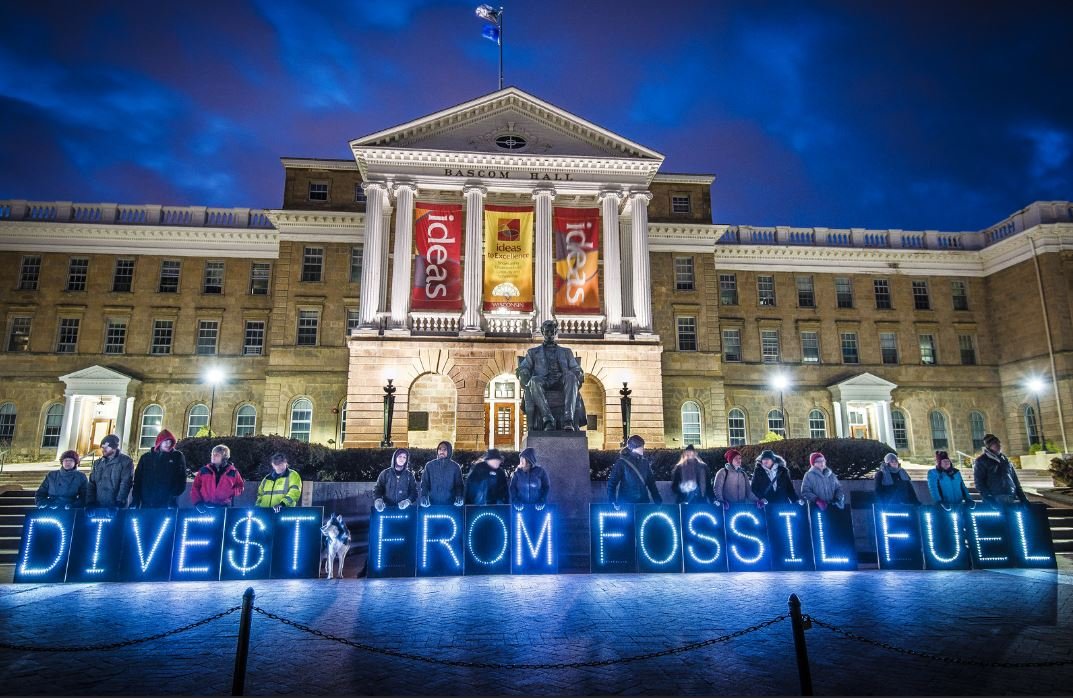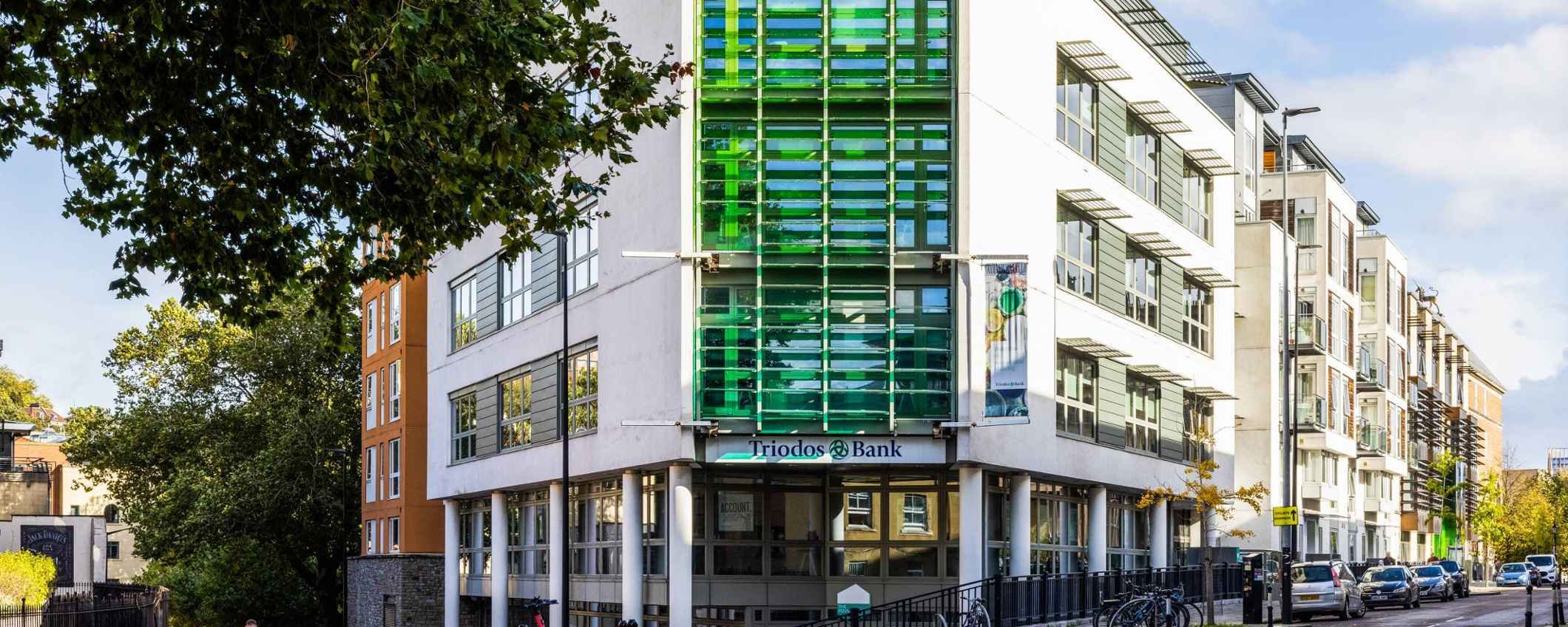How can banks contribute to healthy societies?
ECORESOLUTION in collaboration with SWITCH IT
Author: Amber Hayward
Is there such a thing as an ‘ethical bank’? What does this mean and what would it look like?
For some, the word ‘bank’ may muster a feeling of safety. ‘You can bank on that’ indicates that something is safe and sound: secure - you could put money on it and be sure it was a good investment. And we do; we trust our banks with our life’s savings, assured by the continuity of numbers on a screen.
But as is becoming increasingly clear, banks are relying on the certitude of our money to continue investing in projects that are unashamedly unsafe. Oil, gas and coal, to name just a few of the projects we can bank on our high-street banks to fund. However, this is not an industry most people feel armed to challenge.
“There’s no other option”
“Better the devil you know”
“It’s a lost cause”
Yet we must know that systems are never fixed, unless we believe them to be so - and there is a strong movement within the ethical finance sector that is saying no-thank-you to a financial system which directs money into destructive practices, and yes-please to a regenerative system in which money is directed into projects that will sustain us.
So how can banks positively contribute to societies?
We might know what banks shouldn’t be investing in (fossil fuels - but also arms, nuclear weapons, deforestation) but what can they do to become part of the solution?
Some banks are pulling their socks up and increasing their investments into socially responsible practices, whilst others are building on their ethical DNA.
Triodos Bank UK - An Open Book
Triodos isn’t your typical UK bank - they’re a certified B-corp, rooted in transparency, with sustainability at their core. Which is why they are not only one of Switch It’s recommended providers but also won Best Ethical Financial Provider and Best Investments Provider at the British Bank Awards earlier this year.
There is no chance of dirty secrets with Triodos, who publish the details of every organisation they finance on their website. Dear banks, sorry (not sorry) but if you can’t offer this level of transparency, we don’t want it. Bonus points for making our job at Switch It a little easier when we are working our ranking magic and doing a deep dive into providers’ investment portfolios.
Let’s have a look at some of those investments.
At the end of 2021, Triodos Bank and its Climate and Energy Investment Funds were financing 586 projects in the renewable energy sector. These projects include Wern Ddu wind farm in North Wales, Wharfedale Hydro Power in Hertfordshire, and the 1,100 solar panels at Worthy Farm, home to Glastonbury Festival. Collectively, these projects saved the equivalent of 800,000 tonnes of CO2 entering the atmosphere.
Environmental sustainability is social sustainability and, in 2021, Triodos Bank and Triodos Investment Management financed around 800 social projects, and 220 social housing projects, which directly and indirectly provide accommodation for approximately 59,000 people. For example, the English Rural Housing Association, who provide solutions to housing problems affecting rural communities in the UK; and, founded on social change and low-consumption lifestyles, Ringo Housing Cooperative in Brighton, who provide housing with mutual care for single parents and disabled residents.
Photograph by Tom Bright
It’s amazing what banks can do when their money isn’t tied up in sordid deals.
The Co-operative Bank - An Open Ear
Co-operative Bank, meanwhile, is building on its origins in the values and ethics of the UK’s co-operative movement – which developed in the north of England following the Industrial Revolution to help improve the lives of workers – to make more of an impact in the field of ESG finance.
Since 1992, Co-operative Bank has been the only highstreet bank with a customer-led ethical policy; listening to, and adjusting their priorities in-line with, their customers’ concerns. They are an official partner of the Zero Hour campaign in support of the Climate and Ecological Emergency Bill, and are upping their funding to provide support for sustainable businesses.
Partnered with charities such as Centrepoint, Refuge, and Amnesty International, Co-operative Bank is also supporting social justice initiatives, which receive donations through their mortgage package and Everyday Rewards scheme. As of 2022, the bank has raised over £2 million for Centrepoint, a youth homelessness charity. Among other victories, this funding provided mental health support to over 500 young individuals.
So are banks part of the path to climatic recovery?
Many believe we should step outside of systems that don’t support us - to create new ones in their place. The argument for cryptocurrencies and other systems which bypass the international financial system are many, and many are strong.
But things don’t change overnight, and we have a choice. Do we want to invest our money into projects which destroy our chances of survival, or into those which are actively supporting life on earth?
Inevitably, positive change needs money; financial stability is a massive obstacle for new and existing social and environmental initiatives. If banks switch up their investment policies to support important causes, the potential for rapid improvements in our societies is greatly increased.
So, it’s not the only answer, but it is up to those who recognise the power they have in their bank accounts to redirect their support into projects which will support a healthy society.
Photograph by USDA
It’s up to you to find out if your money is supporting fossil fuel extraction - but switchit.green have made the process super easy.
Use the switching tool to check your bank and, if it’s not good news, choose from one of (there are more than the two mentioned above - don’t fret) the recommended providers. Plus, signing up to the switching journey helps multiply your impact too.
Easy and impactful; win-win!
If you’ve got money sitting in a bank, switch it to support a bank who is positively contributing to our society, rather than one who is actively funding climate breakdown.









